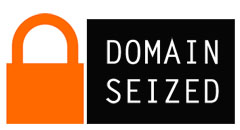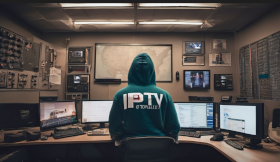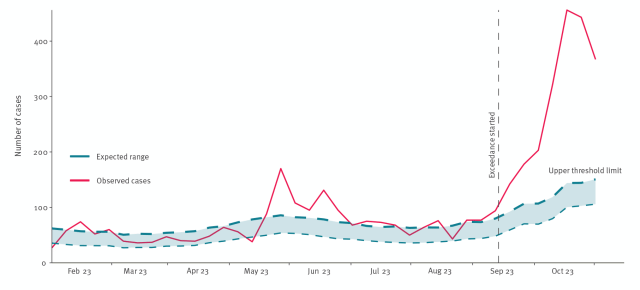-
chevron_right
Domain & IP Seizures in UK’s Criminal Justice Bill Could Apply to Pirate Sites
news.movim.eu / TorrentFreak · Friday, 12 January - 08:28 · 5 minutes
 The UK government’s Criminal Justice Bill had its first reading in the House of Commons on November 14, 2023, followed by its second reading on November 28.
The UK government’s Criminal Justice Bill had its first reading in the House of Commons on November 14, 2023, followed by its second reading on November 28.
A Public Bill Committee is now in the process of scrutinizing the Bill “line by line” and if all goes to plan, the Committee will report back to the House by January 30 , in advance of the Bill’s third reading.
The purpose of the Bill is to amend criminal law and, in many respects, it signals positive change. New criminal offenses to prohibit devices used in serious crime, theft, and fraud, such as 3D printer firearms templates, tablet presses, encapsulators, and vehicle concealment compartments, have been reasonably well-received.
Measures against universally despised, SMS spam-and-fraud-enabling SIM farm devices are long overdue, but some believe that criminalizing the homeless for “nuisance” rough sleeping isn’t the type of change Britain needs right now. However, with prison sentences of up to a month on the table, such nuisances can be completely eliminated, in theory for up to a month.
Preventing Online Crime
During the debate on November 28, Home Secretary James Cleverly spoke about the need to tackle fraud in its various forms. Published in June 2023, the government’s fraud strategy revealed that fraud now accounts for over 40% of all reported crime in the UK, with police dedicating just 1% of overall resources to tackle the problem.
“The Criminal Justice Bill contains several new measures to tackle fraudsters and the perpetrators of other serious crimes. We are prohibiting the possession and supply of SIM farms that have no legitimate purpose,” Cleverly said .
On the disparity between police resources deployed and the sheer scale of the fraud problem, Cleverly responded that it’s “not quite as simple as mapping the proportion of crime to the proportion of police officers,” since there’s a need to “upskill investigators so that they can focus on those crime types.”
The Home Secretary added that new tools to fight fraud are also part of the Bill.
“Law enforcement agencies will have extended powers to suspend domain names and IP addresses used for fraudulent purposes or other serious crimes,” Cleverly said.
Are Pirate Sites Among the Targets?
The Bill sees domain and IP suspensions as a mechanism to fight fraud and other crime that has an online component. Pirate sites aren’t mentioned specifically, but the same also applies to many other illegal operations that currently exist, or might exist in the future.
According to the Bill, investigative agencies would be given new power to apply to the court for a suspension order. These would compel third-party entities, involved in the provision of IP addresses or domain names, to suspend or deny access to them for up to a year.
According to the Bill’s explanatory notes, law enforcement agencies and entities responsible for assigning domain names or IP addresses currently operate under voluntary agreements. These rely on alleged fraudsters violating the terms of service laid down by their providers, at which point domains and/or IP addresses can be suspended for those breaches.
While that works in the UK, overseas providers “do not always recognize” informal requests and demand court orders before any suspensions can take place. The Bill addresses this with the introduction of two new orders, one to suspend IP addresses and one to suspend domain names, to be served against “Regional Internet Registries, Local Internet Registries, or Internet Service Providers.”
According to the government, these orders “can be served internationally, to ensure that any threat originating from outside the UK can be effectively tackled.”
Suspension Orders Target ‘Serious Crime’
The Bill says that an “appropriate officer” may apply for an IP address suspension order. The definition covers police officers, NCA officers, HM Revenue and Customs officers, members of staff of the Financial Conduct Authority, and enforcement officers in the Gambling Commission.
Before a court issues an IP address suspension order, certain conditions must be met. For example, an IP address can only be suspended when it is being used for serious crime.
Crime is defined as conduct which constitutes one or more criminal offenses, or corresponds to conduct which, if it all took place in the United Kingdom, would constitute one or more criminal offenses. The threshold for serious crime is when the offense(s), committed by a person over 18 (or 21 in Scotland and Northern Ireland) with no previous convictions, could reasonably be expected to be sentenced to prison for three years or more.
The majority of the defendants in the recent prosecution of Flawless IPTV had no previous convictions. In 2023, five defendants were sentenced to over 30 years in prison for offenses including conspiracy to defraud and money laundering. Over the last ten years, City of London Police has sent letters to pirate site operators ordering them to shut down or face potential prosecution under the Fraud Act and Serious Crime Act.
Relationship Between IP Address and UK
To show a relationship between the alleged serious crime, an IP address, and the UK, one of several conditions must apply. Most center on the definition of a ‘UK Person’ which broadly covers a person with British citizenship, a person living in the UK, a body incorporated under UK law, or an unincorporated association formed under UK law.
A relationship to the UK is established when a UK Person uses an IP address to commit serious crime, or becomes a victim of serious crime for which the IP address has been used. A relationship can also be established when an IP address is used for crime in connection with unlicensed gambling, or when an IP address is allocated to a device located in the UK.
Using the Flawless case as an example, more than one person used an IP address to commit serious crime, while a UK Person (Premier League) was the victim. Even if the defendants had been located overseas, a relationship could still be established due to the victim’s status as a UK Person.
Reactive and Proactive Suspensions
In respect of domain names, the measures are similar but also include a significant proactive element.
“The domain name conditions also cover instances in which domain names could be used for criminality in the future,” the Bill’s explanatory notes read.
“This is due to the criminal use of domain generation algorithms (DGA) to aid their operations. Once the relevant law enforcement agencies understand the DGA, they can identify domains which could be associated with criminal activity in the future and suspend them before they can be used.”
As previously reported , UK broadcaster Sky is fighting DGAs deployed by IPTV providers who are attempting to circumvent a High Court blocking injunction. While that is a matter under civil law, case law establishes that Sky is a victim of fraud, and a UK Person as defined by the Criminal Justice Bill.
Whether companies like Sky and the Premier League will make use of the provisions in the Bill when it enters into law is unknown. What isn’t in doubt is their determination to use any tool that has the potential to reduce the piracy problem.
From: TF , for the latest news on copyright battles, piracy and more.












